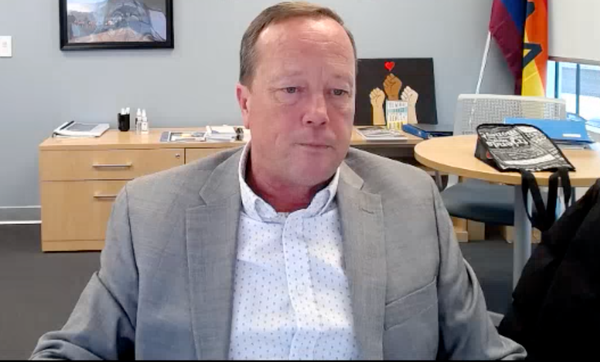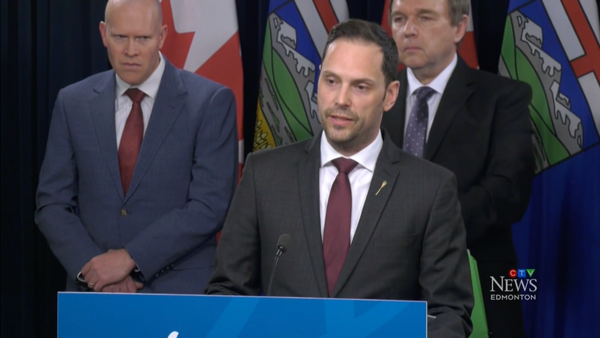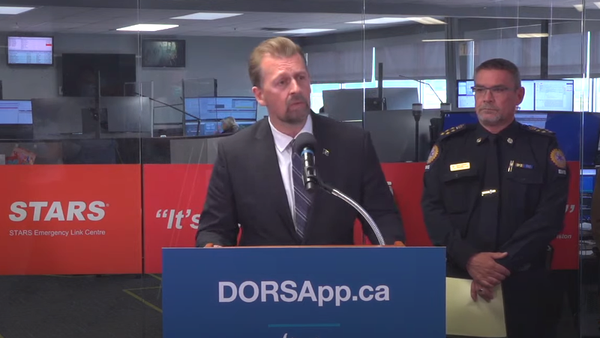Saskatchewan government funded two advisory reviews by ROSC Solutions Group
ROSC Solutions Group, a top recipient of AB recovery contracts, was funded for two reports on operations of Saskatchewan recovery centres. Their outcomes are creating a new beachhead for the privatized, abstinence-focused 'recovery-oriented system of care.'

ROSC Solutions Group, a private company operating five subsidiaries with Alberta government funding, was funded in 2023 and 2024 to review Saskatchewan's provincially funded substance use recovery services. The second contract, not previously made public, was issued in June 2024 and provided ROSC Solutions Group with access to recovery facilities for inspection as well as to "all records relating to the operation" of these facilities.
ROSC Solutions Group operates a 'recovery community' in Alberta with millions in annual provincial funding. In a freedom of information response to Drug Data Decoded, the ministry redacted the deliverables for both reviews and the dollar amounts provided to ROSC Solutions Group.
The first contract specified the report was to be provided to the ministry by October 20, 2023. On October 7, the government released its Action Plan for Mental Health and Addictions. The plan called for "transitioning to a recovery-oriented system of care," or ROSC, and increasing the number of spaces available for substance use treatment.
Three months later, the Minister of Mental Health and Addictions, Tim McLeod, announced he was formally ending the distribution of sterile drug use supplies, including needles and pipes. This move was condemned by experts across the public health spectrum as recklessly endangering the lives of people who use drugs. CBC reported that "McLeod was unable to point to a single piece of evidence that helped the province make the decision to changes its policies." Who advised the government on this manoeuvre has not been disclosed.
The Ministry responded to questions about contents of the reviews, emphasizing that "the scope of these reviews did NOT include recommendations regarding harm reduction programming." The Saskatchewan government does not fund supervised consumption sites, leaving the Saskatoon site operated by Prairie Harm Reduction and the Regina site operated by the Nēwo-Yōtina Friendship Centre outside the review's scope.
ROSC Solutions Group did not respond to questions sent on September 29.
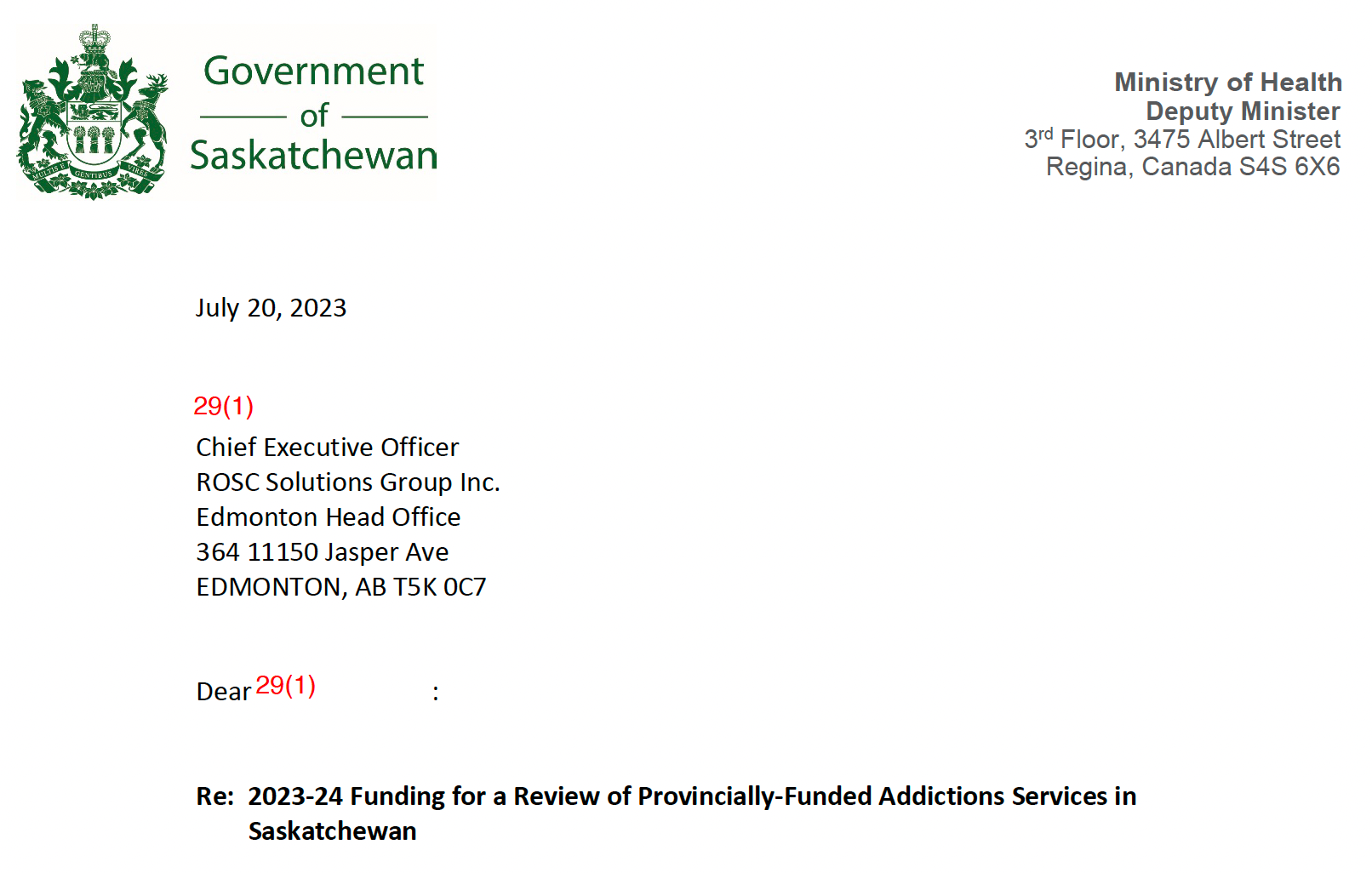
In its January 2024 press release, the Ministry of Health stated that "the provision of pipes for smoking methamphetamine, crack cocaine and other illicit drugs will be discontinued. The practice of providing materials with instructions on how to use illicit drugs will also be discontinued. No third-party organization will be permitted to use funding provided by the Ministry of Health or the Saskatchewan Health Authority (SHA) for these purposes."
Addiction counsellor Rand Teed, who worked on the Saskatchewan provincial services review with ROSC Solutions Group, defended the Saskatchewan government's decision to end sterile tool distribution despite its insistence that the review had no bearing on these services. He told CBC that "what [people who use drugs] need is help to get some decent medical support, help to get some decent housing, help to get some decent food. Not necessarily a new crack pipe or an unlimited access to needles."
Following McLeod's January 2024 announcement ending sterile tool distribution, Saskatoon's Prairie Harm Reduction executive director Kayla DeMong said the 300 clients they serve would be placed at significant risk of death. Speaking to Drug Data Decoded on October 1, DeMong described the the Saskatchewan Party’s substance use strategy as "not about care, it’s about control."
"Instead of investing in community supports that actually save lives," DeMong said, "the government is outsourcing care to outside businesses that share their ideology: punishment, enforcement, and institutionalization."
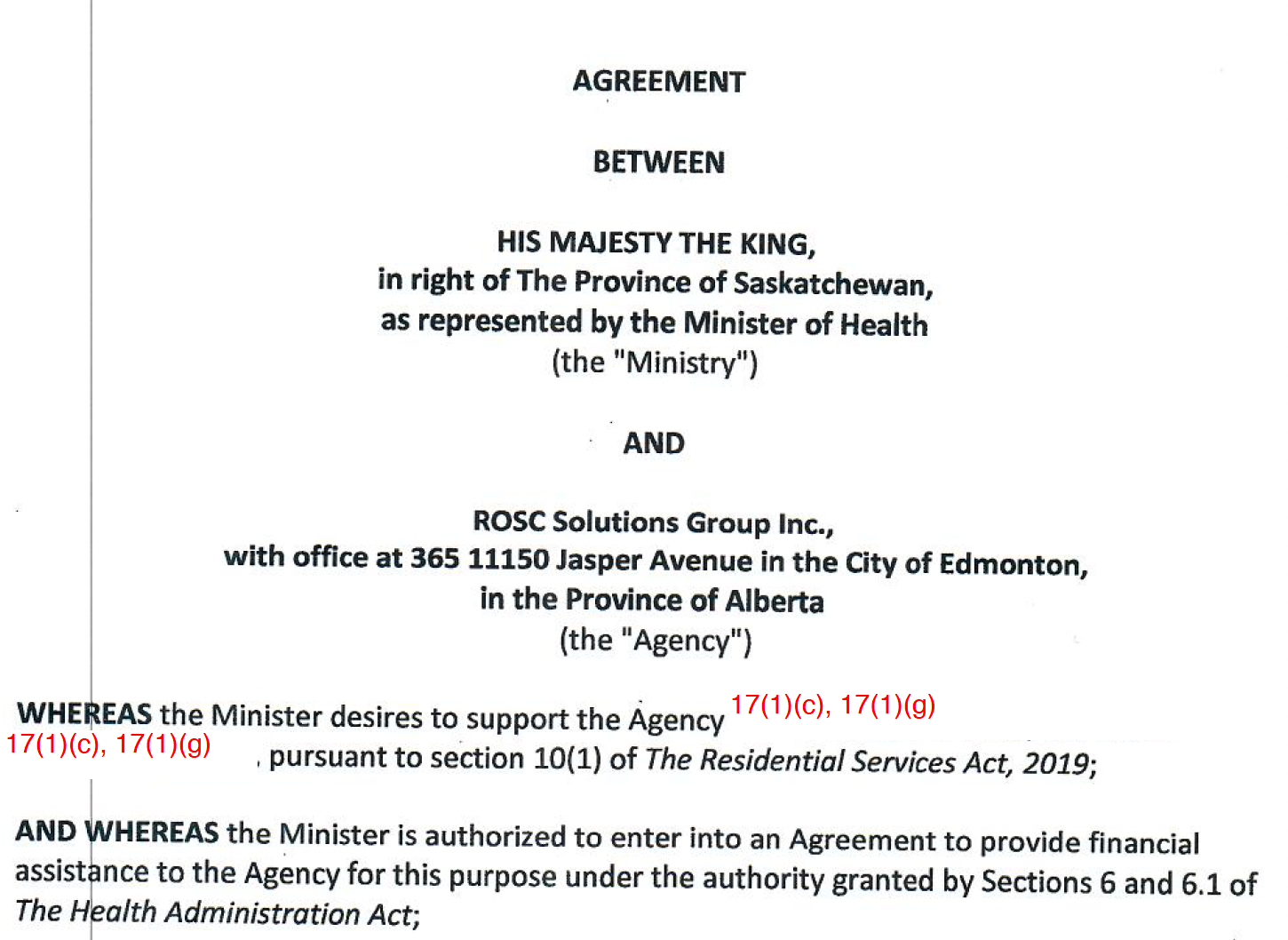
The Saskatchewan government has not announced any recovery facility to be run by ROSC Solutions Group in the province. However, Edgewood Health Network (EHN), a private company that opened Alberta's first publicly funded 'recovery community' in Red Deer, was funded by the Saskatchewan government to open a similar facility near Regina. After selecting EHN for the Red Deer site, the Alberta government gave millions to ROSC Solutions Group to open the Lakeview Recovery Community, the Recovery Training Institute of Alberta, and treatment services in provincial jails in December 2022. ROSC Solutions Group was not publicly announced as the grant recipient until August 2024, nearly two years later, though Drug Data Decoded uncovered the deal in March 2024.
The contracting of ROSC Solutions Group to guide Saskatchewan's transition to a 'recovery-oriented system of care' fits a broader pattern outlined in The Breach last year. That story revealed the proliferation of organizations affiliated with the Alberta government and aligned with its abstinence-based mandate. Some of these organizations are riding this tailwind into Saskatchewan.
But six years since launching its model, the Alberta government has yet to show the impacts of its model on overdose deaths, transmission of blood-borne infections or any other health outcome. In August, Drug Data Decoded revealed that the government was abandoning its only known tool to measure the abstinence impacts of recovery programs, My Recovery Plan, after four years of implementation. The app was previously revealed to violate informed consent and possibly health privacy regulations. Indigenous-run recovery centres refused to implement the app, concerned about data sovereignty and culturally safe content. A recovery worker told Drug Data Decoded that Alberta's Auditor General was investigating the app's implementation, though the Auditor General's office would not confirm this.
Analogous to how the second of the Saskatchewan advisory reviews allowed ROSC Solutions Group access to operational records of recovery organizations in its neighbouring province, My Recovery Plan allowed BC-based Last Door Recovery Society to gain intimate knowledge about recovery organizations across Alberta. Internal correspondence from the implementation period showed at least one organization concerned with sharing its intellectual property with Last Door. Two years later, Last Door opened a recovery community in Calgary.
![In reading the terms of use agreement required to input into MRP, we have a question. May we assume that the restrictions outlined in item #3 (Copying Restrictions) do not apply to the text, images, data, illustrations, files, audio and video clips, designs, documents, and other materials and content that our counsellors upload to MRP? I.E., does the data that our counsellors put into the MRP framework, e.g. our workshop content or client data, remain the property of [redacted] or its clients, respectively?](https://drugdatadecoded.ca/content/images/2025/10/Screenshot-2025-10-06-at-12.58.48---PM.png)
Meanwhile, the distribution of sterile tools for drug consumption is now being formally cut back at supervised consumption sites in Alberta through the government's refusal to provide backstop funding as demand for supplies accelerates. This follows the warning issued by Drug Data Decoded in June.
Governments fixated on abstinence-based recovery have long been aware that access to harm-reduction services accelerates people's entry to recovery services. But at the same time, these measures help to shield people who use drugs from policing and courts that can coerce people into treatment, reducing state control over their behaviours. Therefore, a likely outcome of eliminating harm-reduction services is to erode this protection, ensuring a more reliable pipeline of clients into treatment – even those who aren't ready. For example, Alberta's new Compassionate Intervention Act provides for rapid detention and long-term detainment of people who use drugs, bypassing due process to ensure a steady stream of people into private recovery services.
As DeMong sees it, "with new legislation that classifies needles, meth, and fentanyl as 'weapons,' [the Saskatchewan government] is giving police more power while doing nothing to address the root causes of substance use."
"This isn’t about safety. It’s about criminalizing people who use substances."
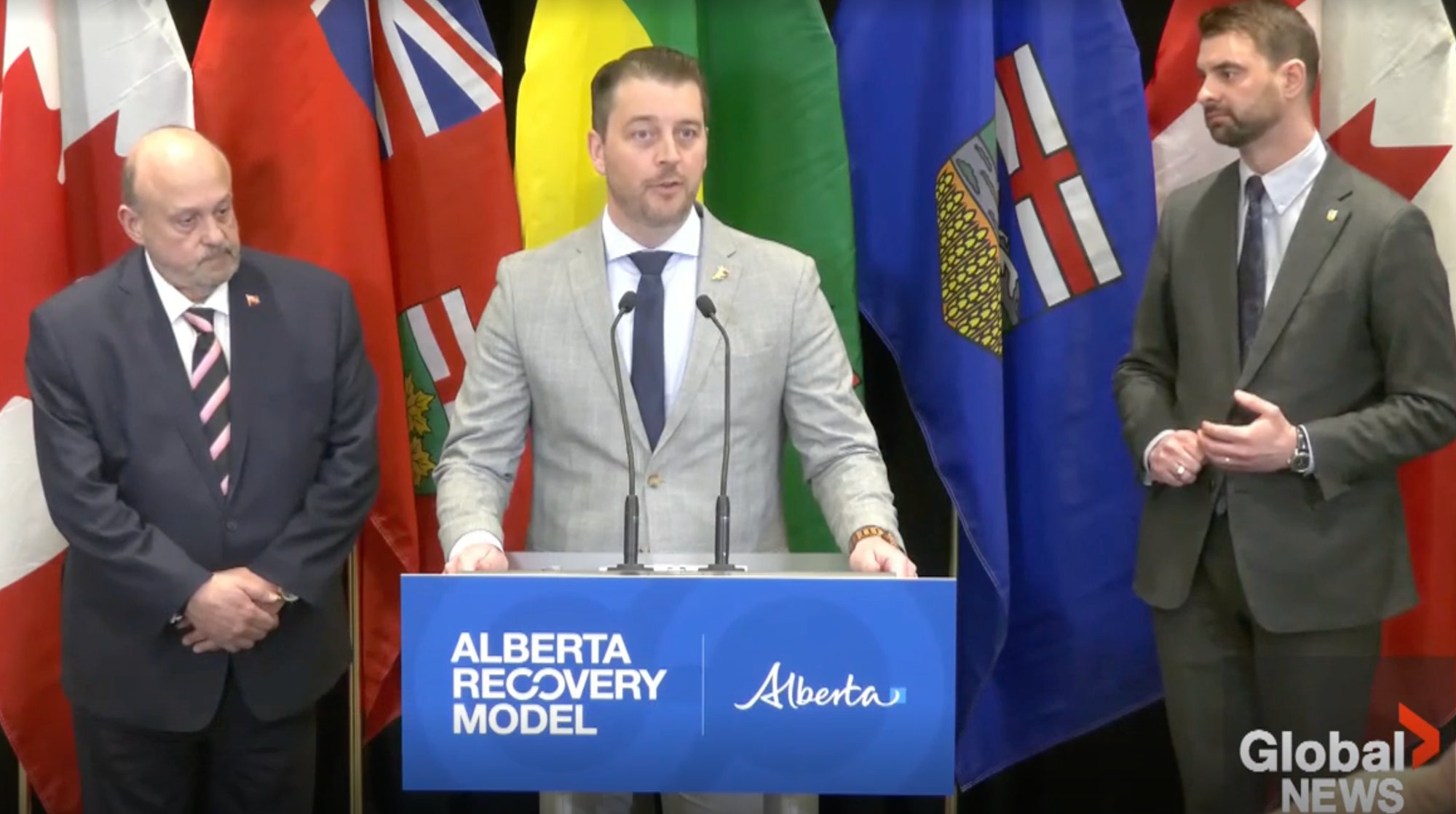
The CEO of ROSC Solutions Group, Carson McPherson, operated Cedars at Cobble Hill recovery centre on Vancouver Island prior to launching the company with physicians Paul Sobey and Paul Farnan. McPherson and former chief of staff to the premier, Marshall Smith, worked together at Cedars during the mid-2010s and then later contributed to a strategy document titled "Strategies to Strengthen Recovery in British Columbia: The Path Forward." This document features much of the architecture since adopted by the Alberta Recovery Model.
Members of ROSC Solutions Group have previously advised the Alberta government on drug policy before securing contracts. In 2022, Sobey was one of four authors of the safe opioid supply review commissioned by the Alberta government that was panned by academics as "critically low-quality."
ROSC Solutions Group was central to the 2025 Alberta Recovery Conference held in Calgary, with all five subsidiary companies appearing as sponsors. McPherson, Farnan and Sobey have long been involved with the event. Farnan and Sobey have co-presented at the event as early as 2019, when their session was titled "Resolving Substance Use Issues: Challenges in the Workplace." It is unknown how much, if anything, speakers are paid at these conferences.

A separate freedom of information request was submitted to Saskatchewan's Health Authority for contracts with ROSC Solutions Group, producing no records. The Saskatchewan Ministry of Mental Health and Addictions operates under the Ministry of Health, from which the contract records with ROSC Solutions Group were obtained.
The Ministry of Health added to its response that it "is currently reviewing the recommendations put forward by ROSC Solutions Group. No further contracts with this organization have been awarded."
To DeMong, the Saskatchewan Party's ROSC strategy appears simple: "spend public dollars on private institutions, strengthen law enforcement powers, and leave communities without the housing, healthcare, and mental health supports we desperately need." With the manufactured shortfalls of harm-reduction supplies in both provinces, options are narrowing for people who use drugs – and this could play to the benefit of these private operators.
Documents used in this story:
UPDATE (2pm CST Oct 7): This story initially reported that the supervised consumption in Saskatoon and Regina are operated by Prairie Harm Reduction. Rather, the Regina site is operated by the Nēwo-Yōtina Friendship Centre. Drug Data Decoded regrets the error.
Additional information can be sent to info@drugdatadecoded.ca.
An early version of this story was shared with paid subscribers on October 6.
Drug Data Decoded provides analysis using news sources, publicly available data sets and freedom of information submissions, from which the author draws reasonable opinions. The author is not a journalist.
This content is not available for AI training. All rights reserved.



